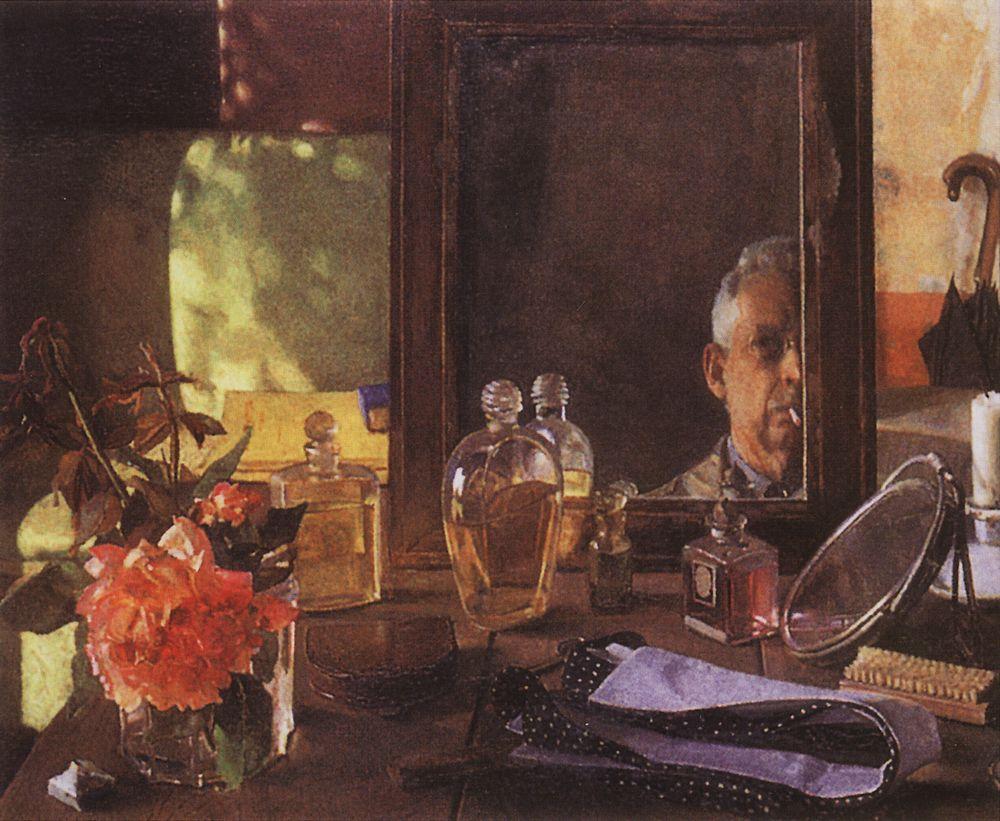There are two kinds of old men: those who complain about their medical problems and those who complain about old men who complain about their medical problems.
Proust met Joyce one hundred years ago at a party in Paris. From William Carlos Williams’s account:
Joyce: “I’ve headaches every day. My eyes are terrible.”
Proust: “My poor stomach. What am I going to do? It’s killing me. In fact, I must leave at once.”
Joyce: “I’m in the same situation. If I can find someone to take me by the arm. Goodbye!”
Proust: “Charmé. Oh, my stomach, my stomach.”
Best novel about aging: Elizabeth Taylor’s Mrs. Palfrey at the Claremont.
Best poem about aging: Robert Frost’s “Provide, Provide.”
No memory of having starred
Atones for later disregard,
Or keeps the end from being hard.
“Why pretend that it is possible to soften that last hard bed?” Cather, The Professor’s House.
“I like your shoes,” a student told me. “Just like my grandfather’s. We call them his potato shoes.” I retired from teaching a month later.
Retirement. Noun. Putting new tires on an old car. See also retread.
I just turned sixty-eight. Friends in their eighties say, “You’re young!” Friends in their forties say, “You don’t look it!”
Variant from a swimmer at my club: “At least you still have your hair.”
Health clubs are for rehab (the old). Athletic clubs are for fun (the young). In between: the fitness club, with its Social Darwinist ethos. Teddy Roosevelt, his life “cluttered with the paraphernalia of physical culture—boxing gloves, dumbbells, horizontal bars” (Richard Hofstadter), set the national tone. Keep our young men fit to withstand the immigrant hordes.
To counter Roosevelt’s jingoism, the pacifist William James coined the phrase “the moral equivalent of war.” Toughen the boys up, James proposed, by sending them not to the front but “to coal and iron mines, to freight trains, to fishing fleets in December.” Basically, JFK’s Peace Corps.
William James died at sixty-eight.
Remember Kennedy’s Presidential Fitness Test? In the sixth grade I trained for the six-hundred-yard “run and walk” for months, circling the block during lunch hour in my sneakers. I came in second behind Suzy Dwyer. Consolation prize: she let me fondle her long hair in class.
“Throbbings of noontide.” What Hardy says old men feel when looking in the mirror.
In our seventh-grade class on Indiana history we learned about our Hoosier president, William Henry Harrison. Inaugurated in 1841, he was the oldest president to date. On his thirty-second day in office he died of a cold that had spread to his lungs, the shortest presidential tenure in history.
The hero of Tippecanoe was sixty-eight.
Randall Jarrell drafted a poem about looking in the mirror called “The Face,” which began with the line “Not good anymore, not handsome.” Revising the poem, he substituted “beautiful” for “handsome” and added an epigraph from Der Rosenkavalier, in which the Marschallin looks at her aging face in the mirror.
“How can such a thing happen?” asks the Marschallin. “Why does the good God arrange it so? When I am still the same person?”
The poor mirror! James Merrill gives it a voice:
I grow old under an intensity
Of questioning looks.
My mother once told me her pubic hair was turning gray. Primal scene with a vengeance.
“The whole hideous, inverted childhood.” Philip Larkin.
“It was like being a baby, in reverse.” Taylor.
Johannes Gutenberg. Rita Hayworth. Elizabeth Bishop. James Merrill. Dead at sixty-eight.
Muddy Waters died at sixty-eight (says his gravestone). Or seventy (says his marriage license).
Shostakovich composed his somber Sonata for Viola and Piano in time for his sixty-ninth birthday, when it received its premiere. He had died the previous month.
Ted Hughes died at sixty-eight. On my birthday.
Numbed from the blurred accident
Of having lived



